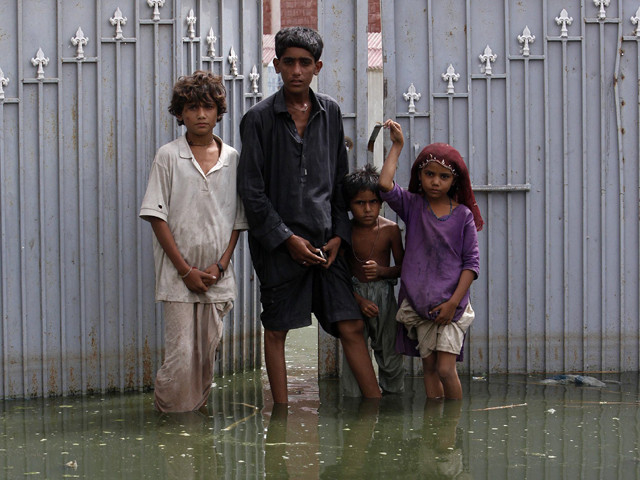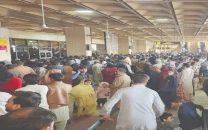Daring to dream for a better tomorrow

A loud explosion was heard by locals in the early hours of Thursday. According to reports, a rattling sound in the village of Musa Kor was followed by the collapse of a two-room girls primary school within seconds. Including this latest loss, the total number of schools destroyed in the agency stands at 43. While the military claims to have cleared almost 80 per cent area of the Taliban, attacks on schools – especially girls’ education institutes – has picked up pace.
Since the start of the new decade, more than 11 schools have been destroyed with the last four being blown up within just a month. However, the greatest amount of destruction was witnessed in Tehsil Safi with at least 27 schools being reduced practically to rubble. Safi Tehsil is considered to be the spiritual homeland of the local chapter of the outlawed Tehreek-e-Taliban Pakistan.
After the 2007 Lal Masjid saga, heavily-armed Taliban insurgents had camped in the shrine of a popular saint and resistance leader Haji Sahib Turangzai, renaming it as Lal Masjid to express solidarity with the radical clerics of the Islamabad mosque. Since July 31, 2008, local militant have imposed their own hardline version of Islam in the area.
In contrast, in areas where the militants’ hold is weaker, such as Tehsil Bayzai, the damage has been significantly contained. According to official reports, two schools were destroyed, however, the locals argue the number is slightly higher. The situation in surrounding areas is barely encouraging, with Tehsil Ambar, Pindiyali and Eka Ghund bearing damages of seven, four and three schools, respectively. But terrorism is not the only evil ruining the prospects of education in the insurgencyhit agency.
Corruption, as a result of the tribal-system brings its set of problems. Tribal chiefs, commonly known as Maliks, were given charge of the schools as an incentive. This gave the Maliks free (and in most cases unaccountable) access to ‘amenities’ provided by the government. It now seems the political administration has learnt its lesson and has withdrawn these privileges from the Maliks. While speaking to The Express Tribune, Political Agent of Mohmand Agency, Amjad Ali says:
“The decision was made because those who cannot take care of their schools have no right to the facilities from them.” Zahir Shah is a lawyer who resides in Tehsil Safi. He used to own a school in the area but that too was blown up by militants. He expresses his concerns over the decline in female attendance and enrolment in schools as fear grips their families, more so since militants targeted a school which accommodated 500 students. The government has not announced any compensation as yet and even if they do rebuild the school the threat always exists.
There is a single watchman in the school at night and why who would he risk his life for a paltry sum to combat militants who are heavily armed?” Shah regretfully says. Approximately 300,000 people have fled Mohmand Agency since the military operation began in 2008. Despite repeated requests and assurance by the government to return home, the locals are still reluctant, and perhaps rightly so.
Many believe the government and army have still not managed to establish its writ in the agency, with rampant lawlessness and no sign of peace being restored anytime soon. Last month the political administration along with the UNHCR requested for facilities to those who were willing to repatriate. Local sources say just 47 families have returned so far. Tribal legions known as Lashkars are combating militancy and have come under attack repeatedly from militants, the recent being in Tehsil Bayzai on April 26.
The consequences were devastating as militants mercilessly fired rockets at the funeral for the deceased. But efforts are underway to improve the situation. According to the political administration, a survey of total number of destroyed and damaged schools is complete. However, a time frame for their reconstruction is unknown. Source the Fata secretariat says the priority is to re-construct houses and now school, simply because people need a roof first. As hard as the residents would like to believe in peace and a life without fear, the recent militant attacks and kidnappings in the area jolt them back to their dire reality.

1724319076-0/Untitled-design-(5)1724319076-0-208x130.webp)

















COMMENTS
Comments are moderated and generally will be posted if they are on-topic and not abusive.
For more information, please see our Comments FAQ